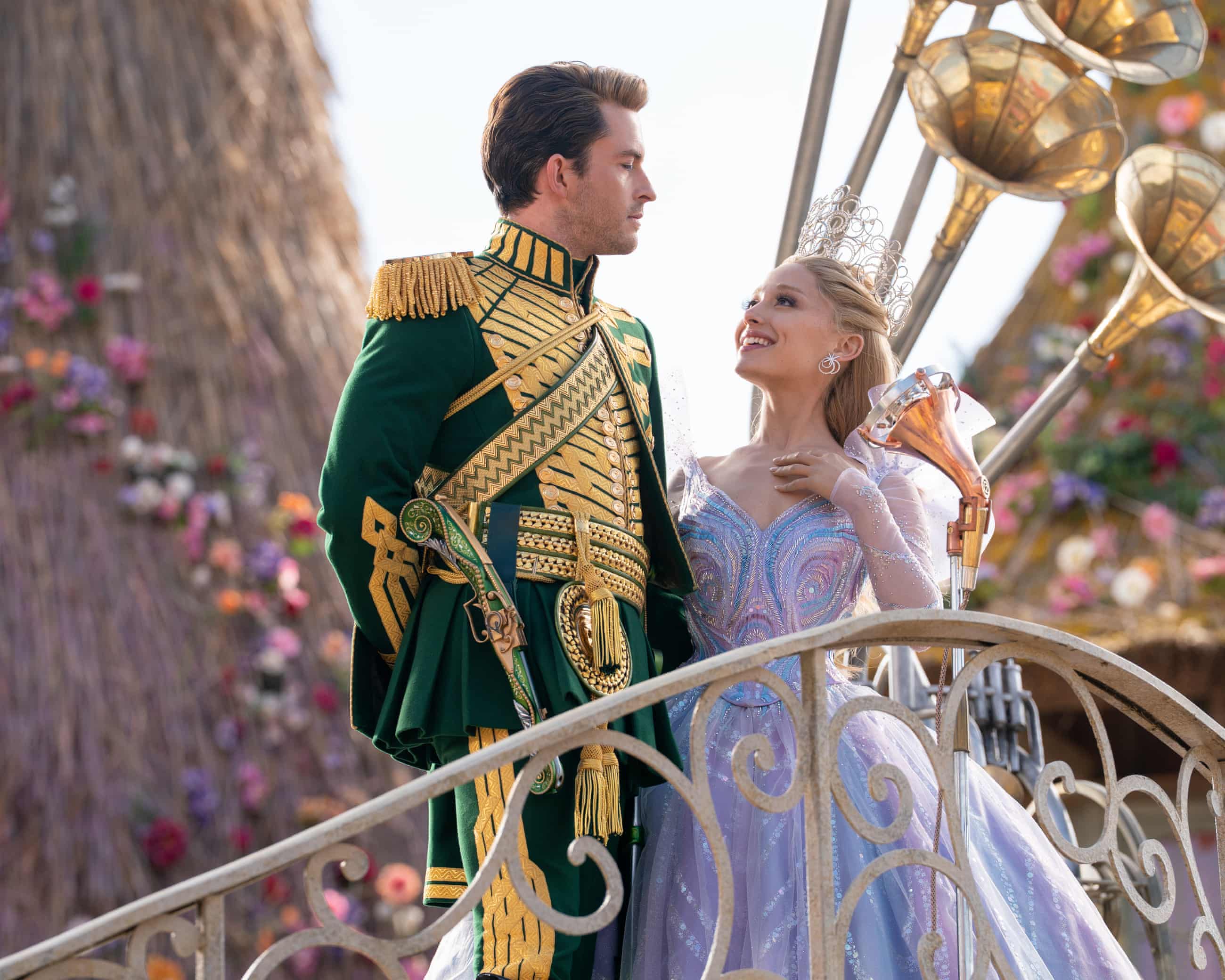Europe loosens reins on AI – and US takes them off

Hello, and welcome to TechScape.I’m your host, Blake Montgomery, writing to you from an American grocery store, where I’m planning my Thanksgiving pies.In tech, the European Union is deregulating artificial intelligence; the United States is going even further.The AI bubble has not popped, thanks to Nvidia’s astronomical quarterly earnings, but fears persist.And Meta has avoided a breakup for a similar reason as Google.
The hundreds of billions of dollars being spent on AI are overwhelming Europe’s commitment to digital privacy and stringent tech regulation.The EU’s AI Act and General Data Protection Regulation (GDPR) law are being delayed and weakened, respectively.Former Italian prime minister Mario Draghi had warned a year ago that Europe had fallen behind the US and China in innovation and was weak in the emerging technologies that would drive future growth, such as AI.Others, including the EU’s economy commissioner, agreed with him.My colleague Jennifer Rankin reports on Brussels’s quest for growth:The plans were part of the commission’s “digital omnibus”, which tries to streamline tech rules including GDPR, the AI Act, the ePrivacy directive and the Data Act.
If agreed, the changes to GDPR would make it easier for tech firms to use personal data to train AI models without asking for consent, and try to end “cookie banner fatigue” by reducing the number times internet users have to give their permission to being tracked on the internet.The commission also confirmed the intention to delay the introduction of central parts of the AI Act, which came into force in August 2024 and does not yet fully apply to companies.Read more: European Commission accused of ‘massive rollback’ of digital protectionsMeanwhile, the US is taking things even further in its quest to maintain its lead in artificial intelligence, and is seeking to undo any constraints on the future growth of the AI industry.Members of Congress have included language in the yearly National Defense Authorization Act that would direct the federal government to block state-level AI regulation.AI is not heavily regulated in the US in comparison to Europe or China, but it may soon be even less so.
The same measure within the NDAA may also bar the Chinese drone maker DJI, the biggest in the world, from launching new products in the US.Donald Trump drafted an executive order to the same effect last week, and Republicans in Congress proposed a 10-year moratorium on state laws regulating AI earlier this year that failed in a spectacular 99-1 Senate vote.The additions to the act may face a similar avalanche of blowback.On Monday, more than 200 state-level representatives and senators published a letter opposing the measure (pdf).Under the proposed regulation’s terms, the justice department would sue individual states that attempt to rein in AI, likely California and Colorado.
Should the act pass, the US would go even further hands-off with its regulation of the emerging technology, not only declining to impose nationwide regulation on the companies producing it but penalizing any state legislation that tries to do so,Critics say such a measure allows AI’s harms to run rampant and unchecked and impinges on state sovereignty; proponents in Silicon Valley say the fewer legislative hurdles they face, the faster they can grow and make money, which they argue is good for the country as well as themselves,Trump’s remarks on his desire to simplify AI regulation in the US are ridiculous,“You can’t go through 50 states,You have to get one approval.
Fifty is a disaster.You’ll have one woke state and you’ll have to do all woke,” he said at the US-Saudi Investment Forum last week.“You’ll have a couple of wokesters and you don’t wanna do that.You wanna get the AI done.”The best early Black Friday deals in the UK on the products we love, from sunrise alarm clocks to heated airersThe 15 best tech gifts in the US, picked by a gadget reviewer who’s used hundredsThe 20+ best Black Friday and Cyber Monday tech deals in the US – so farMeet the AI workers who tell their friends and family to stay away from AIAI is changing the relationship between journalist and audience.
There is much at stake | Margaret SimonsNvidia reported its quarterly earnings last week,They were stellar, as has been the case now for multiple years’ worth of quarterly earnings,Our headline in August: “Nvidia sets fresh sales record amid fears of an AI bubble and Trump’s trade wars”,And this month: “‘We excel at every phase of AI’: Nvidia CEO quells Wall Street fears of AI bubble amid market selloff”,My colleague Johana Bhuiyan covered the report:The company surpassed Wall Street’s expectations in nearly every regard, as it has for multiple quarters in a row, a sign that the financially enormous AI boom is not slowing down.
Nvidia reported $1.30 in diluted earnings per share on $57.01bn in total revenues, beating investor expectations of $1.26 in earnings per share on $54.9bn in revenue.
Sales are up 62% year-over-year,The company reported $51,2bn in revenue from datacenter sales, beating expectations of $49bn,The company is also projecting fourth- quarter revenue of around $65bn; analysts had predicted the company would issue a guidance of $61bn,“There’s been a lot of talk about an AI bubble,” said CEO Jensen Huang.
“From our vantage point, we see something very different.As a reminder, Nvidia is unlike any other accelerator.We excel at every phase of AI from pre-training to post-training to inference.”The markets cheered, with stocks worldwide surging in Nvidia’s wake.The chipmaker’s success is persistent; so are fears of an imminent steep crash.
As evidence of ongoing uneasiness about the enormous spending on AI infrastructure, the day after Nvidia’s strong results, stocks across the board fell.My colleague Callum Jones reported on the market’s deflation:Leading US stock markets fell less than 24 hours after strong results from the chipmaker Nvidia sparked a rally.Wall Street initially rose after Nvidia, the world’s largest public company, reassured investors of strong demand for its advanced datacenter chips.But the relief dissipated, and technology stocks at the heart of the AI boom came under pressure.The benchmark S&P 500 closed down 1.
6%, and the Dow Jones industrial average closed down 0.8% in New York.The tech-focused Nasdaq Composite closed down 2.2%.“The people who are selling the semiconductors to help power AI doesn’t alleviate the concerns that some of these hyper-scalers are spending way too much money on building the AI infrastructure,” said Robert Pavlik, senior portfolio manager at Dakota Wealth.
“You have the company that’s benefiting from it, but the others are still spending too much money.”Snapchat to tell 440,000 Australians to prove they’re 16 or accounts will be locked in social media banAustralia’s under-16s social media ban is weeks away.How will it work – and how can I appeal if I’m wrongly banned?Meta defeated a major antitrust lawsuit brought by the US government last week.The logic behind the win echoes the same rationale put forward by the judge in another tech giant’s monopoly case, US vs Google.Both judges said that the landscape in the technology industry had changed quite a lot since the trials began.
In recent years, meaningful competition has emerged in Google and Meta’s spheres of the technology industry, search and social media.For Google, the insurgent competition is ChatGPT and generative AI more broadly.The tech giant has acknowledged that it is in an existential race against its smaller rival, OpenAI.In 2022, Google management called ChatGPT a “code red” for its search business.This David is not fated to win against Goliath, though.
Sam Altman recently said Google’s advances in AI would create “temporary economic headwinds” and “rough vibes” for his company.For Meta, the competition is TikTok.Mark Zuckerberg used similar language to Pichai when he described the app’s rapid rise as a “highly urgent” threat to his company’s social networks.Soon after he said that, Meta debuted Reels, its short-form video feed within Instagram.Judge James Boasberg cited the rise of the wildly popular Chinese social media app as particular evidence of competition in the social networking market.
“The landscape that existed only five years ago when the Federal Trade Commission brought this antitrust suit has changed markedly,” He also chided the FTC for failing to account for the YouTube video platform as meaningful competition,“Even if YouTube is out, including TikTok alone defeats the FTC’s case,” he wrote,As a result of the new competition, Boasberg ruled, Meta will not be forced to sell off Instagram, which it bought for just $1bn in 2012, or WhatsApp, which it purchased in 2104 for $19bn,Read more: Meta wins major US antitrust case and won’t have to break off WhatsApp or InstagramIn September, the US judge presiding over US vs Google authored an opinion similar to Boasberg’s, though different in the key fact that Google lost the case.
The government had accused the tech giant of operating an illegal monopoly over online search.Globally, the company controls about 90% of the search market, according to the University of Pennsylvania’s Wharton Business School.Google.com is the most popular website in the world.The judge agreed with the government’s assertion.
He did not agree that the solution would be forcing Google to sell Chrome,Google will not be forced to divest Chrome, the most popular web browser in the world and likely worth more than Instagram and WhatsApp combined,Generative AI had altered that market permanently, he said, and introduced the kind of competition Google had not seen in decades,OpenAI and others were in a better position to compete with Google than any previous challengers,Read more: How Google dodged a major breakup – and why OpenAI is to thank for itMany prominent Maga personalities on X are based outside US, new tool revealsElon Musk’s Grok AI tells users he is fitter than LeBron James and smarter than Leonardo da Vinci‘It’s hell for us here’: Mumbai families suffer as datacentres keep the city hooked on coalBro boost: women say their LinkedIn traffic increases if they pretend to be menThe Guardian view on crypto’s latest crash: it reveals who pays the price for a failing economyCloudflare outage causes error messages across the internetThe best public interest journalism relies on first-hand accounts from people in the know.
If you have something to share on this subject, you can contact us confidentially using the following methods.Secure Messaging in the Guardian appThe Guardian app has a tool to send tips about stories.Messages are end to end encrypted and concealed within the routine activity that every Guardian mobile app performs.This prevents an observer from knowing that you are communicating with us at all, let alone what is being said.If you don't already have the Guardian app, download it (iOS/Android) and go to the menu.
Select ‘Secure Messaging’,SecureDrop, instant messengers, email, telephone and postIf you can safely use the Tor network without being observed or monitored, you can send messages and documents to the Guardian via our SecureDrop platform,Finally, our guide at theguardian,com/tips lists several ways to contact us securely, and discusses the pros and cons of each,

Diaries, artworks and more to be auctioned from Marianne Faithfull’s personal belongings
Diaries and a gift from actor Carrie Fisher are among the personal items from Marianne Faithfull that are going up for auction in London.The musician died in January aged 78, leaving behind a cache of fascinating portraits, photographs and ephemera from a glamorous, sometimes troubled life. “Each piece tells a story and reflects her spirit and inimitable taste,” her son Nicholas Dunbar said. “It is time now for these belongings to find new homes and I hope that they will bring as much joy to their new owners as they did Marianne.”The diaries include one from 1959 when Faithfull was in her early teens, and a 1989 journal entitled Goals

Donald Glover reveals he had a stroke on Childish Gambino tour in 2024
Donald Glover, who performs under the name Childish Gambino, has revealed he had a stroke last year which forced him to cancel world tour dates.At the time the 42-year-old said he was dealing with an “ailment” after performing in New Orleans and had gone to a hospital in Houston, where he discovered he needed surgery. He subsequently postponed, then entirely cancelled the remainder of his US tour, as well as all of his UK, European and Australian dates, writing: “Unfortunately, my path to recovery is taking longer than expected.”While performing at Tyler, the Creator’s Camp Flog Gnaw festival in Los Angeles on Saturday night, Glover told the audience that he’d had a stroke.“I was doing this world tour,” he said

‘He was just trying to earn a few kopecks’: how newly translated stories reveal Chekhov’s silly side
Few writers are as universally admired as Chekhov. As Booker winner George Saunders puts it, “Chekhov – shall I be blunt? – is the greatest short story writer who ever lived.” Novelists from Ann Patchett to Zadie Smith cite him as an inspiration. His plays The Seagull, Three Sisters, Uncle Vanya and The Cherry Orchard still pack out theatres internationally. In the past year alone, Andrew Scott wowed audiences in his one-man Vanya for London’s National Theatre and Cate Blanchett took on the role of Arkadina in The Seagull at the Barbican

From Wicked: For Good to Stranger Things: your complete entertainment guide to the week ahead
Ariana Grande sparkles in the concluding part of the Wicked Witch tale, and the first batch of final episodes of the retro sci-fi juggernaut are unleashedWicked: For GoodOut nowWas the decision to split this Broadway musical big-screen adaptation into two parts motivated by art or money? Part two is here, so you can judge for yourself. The Wizard of Oz-inspired story picks up with defiant “Wicked Witch” Elphaba (Cynthia Erivo) living in exile, while Glinda (Ariana Grande) relishes her own popularity.The Thing With FeathersOut nowMax Porter’s novel Grief Is the Thing With Feathers gets the big-screen treatment, with Benedict Cumberbatch in the lead role as the dad who must raise his two young children alone after his wife dies unexpectedly. With David Thewlis as the voice of the crow who appears to him.The Ice TowerOut nowMarion Cotillard stars as a star: an actor called Cristina, who is playing the beautiful Snow Queen in a 1960s adaptation of the Hans Christian Andersen classic that also inspired Frozen

Kristen Bell and Brian Cox among actors shocked they’re attached to Fox News podcast
The Fox News announcement of a new podcast series on Jesus Christ has turned into a bizarre holiday tale in Hollywood, as several actors attached to massive, 52-episode project claim their recordings date back 15 years and are being released without their prior knowledge.The new audiobook titled The Life of Jesus Christ Podcast, announced on Wednesday as part of a splashy rollout for the network’s new Christian vertical called Fox Faith, purports to guide listeners “through the life, teachings, and miracles of Jesus Christ”, with each episode introduced by Fox & Friends co-host Ainsley Earhardt.The announcement boasted that more than 100 actors had signed on to participate in the project, with a voice cast including Kristen Bell as Mary Magdalene, Sean Astin as Matthew, Neal McDonough as Jesus, Brian Cox as the Voice of God, Malcolm McDowell as Caiaphas, John Rhys-Davies as the narrator and Julia Ormond as Mary.But reps for Bell claim that the actor was blindsided by the announcement, as she had recorded the audio 15 years ago. She only learned that Fox planned to release a podcast with her name attached the day before the announcement, when her team received an invitation to appear on Fox & Friends the following day, her reps told Rolling Stone

The Guide #218: For gen Zers like me, YouTube isn’t an app or a website – it’s the backdrop to our waking lives
Barely a month goes by without more news of streaming sites overtaking traditional, terrestrial TV. Predominant among those sits YouTube, with more than 2.5 billion monthly viewers. For people my age – a sprightly 28 – and younger, YouTube is less of an app or website than our answer to radio: the ever-present background hum of modern life. While my mum might leave Radio 4 wittering or BBC News flickering in the corner as she potters about the house, I’ve got a video essay about Japan’s unique approach to urban planning playing on my phone

Tuilagi could face England with Samoa while Marchant return is boon for Borthwick

Racing celebrates ‘Axe the Tax’ Budget campaign victory after Reeves spares sport

Commonwealth Games hosts Ahmedabad vow not to repeat Delhi 2010 farce

Field of Dreams-like shrine to cricket built ‘from bud to bat’ – photo essay

World Cup winner Abby Dow quits rugby in shock move to focus on career

The Spin | First-over destroyer Mitchell Starc deserves place among Australia’s greats